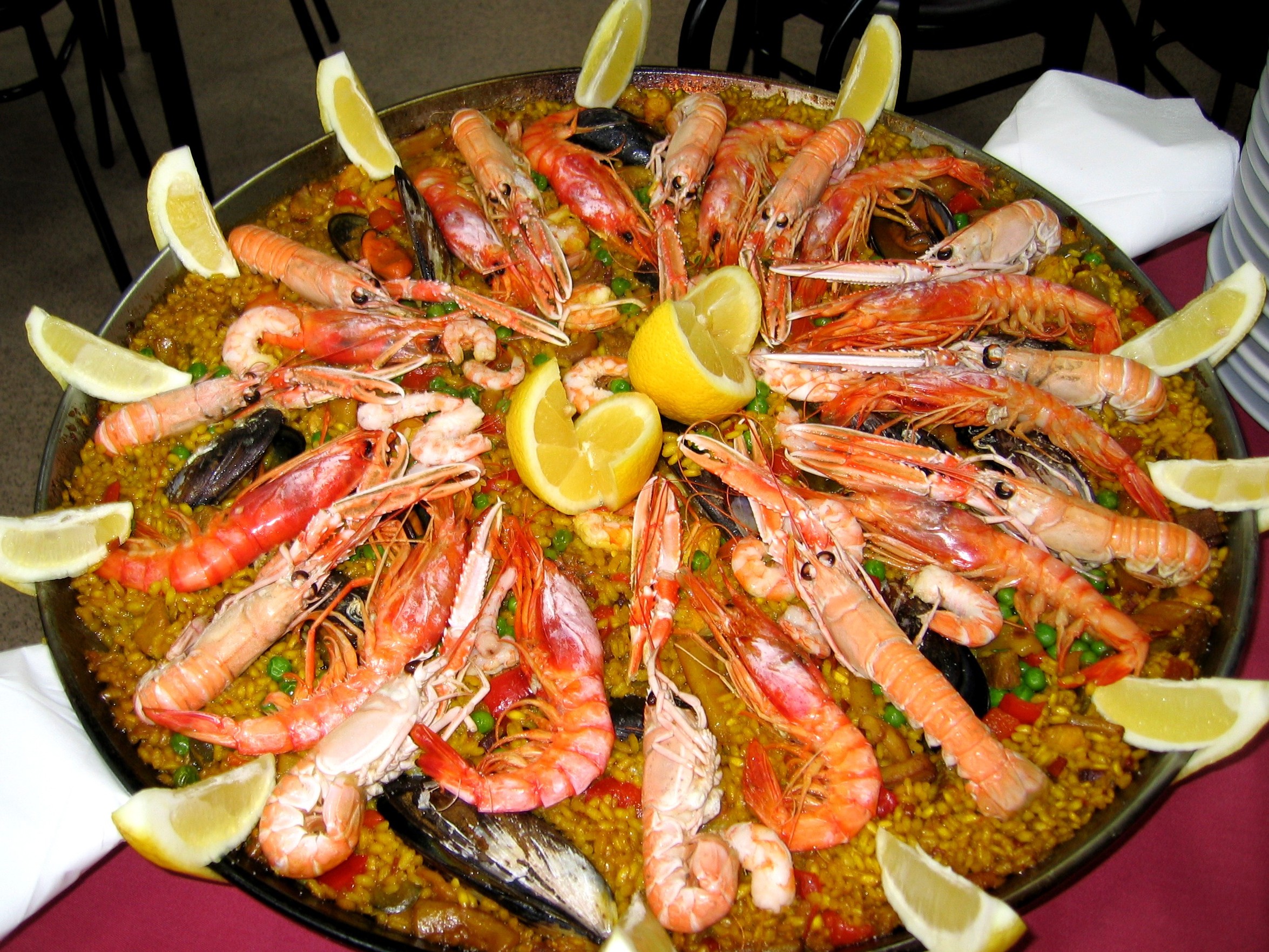Learning Spanish 101
- Introduction to Spanish
- Everyday Vocabulary
- Conversational Spanish
- Intermediate Grammar
- Travel Vocabulary
- Business Spanish
- Spanish Culture
- Advanced Grammar
- Spanish Literature
- Spanish in the Media
- Review and Practice
Everyday Vocabulary
Food and Drinks in Spanish

Culinary traditions of Spain.
In this unit, we will explore the Spanish vocabulary related to food and drinks. This will not only help you navigate Spanish menus but also enable you to communicate your dietary preferences and restrictions effectively.
Basic Food Vocabulary
Let's start with some basic food categories:
- Fruits (Frutas): apple (manzana), banana (plátano), orange (naranja), etc.
- Vegetables (Verduras): carrot (zanahoria), potato (patata), onion (cebolla), etc.
- Meats (Carnes): chicken (pollo), beef (carne de res), pork (cerdo), etc.
- Dairy Products (Productos lácteos): milk (leche), cheese (queso), yogurt (yogur), etc.
- Grains (Granos): rice (arroz), bread (pan), pasta (pasta), etc.
Common Beverages
Next, let's look at some common beverages:
- Water (Agua)
- Coffee (Café)
- Tea (Té)
- Alcoholic drinks: beer (cerveza), wine (vino), cocktail (cóctel)
Ordering Food in a Restaurant
When ordering food in a restaurant, these phrases might come in handy:
- Asking for the menu: "¿Puede darme el menú, por favor?" (Can you give me the menu, please?)
- Making an order: "Me gustaría..." (I would like...)
- Asking for the bill: "¿Puede traerme la cuenta, por favor?" (Can you bring me the bill, please?)
Dietary Restrictions and Allergies
If you have dietary restrictions or allergies, it's important to know how to communicate them:
- Vegetarian: "Soy vegetariano/a" (I am a vegetarian)
- Vegan: "Soy vegano/a" (I am a vegan)
- Gluten-free: "No puedo comer gluten" (I can't eat gluten)
- Lactose intolerant: "Soy intolerante a la lactosa" (I am lactose intolerant)
By the end of this unit, you should be able to identify and use a wide range of food and drink vocabulary in Spanish. Practice these words and phrases to become more comfortable with them, and try to incorporate them into your daily conversations.